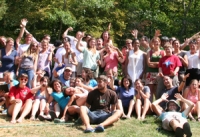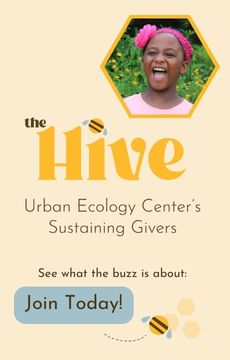Presently, many of us who are not Native American do not primarily relate to this social construct; we do not talk about our friends and families as being part of our tribe. Nonetheless, I like to believe that in our own way we exist in tribes as well.
When I explain my motivation for moving back to Milwaukee eight years ago I say that I did it to be closer to my “tribe” – for kinship, support and shared values that seem more intimate than what I typically think of as community. Since being back in Milwaukee my tribe has grown to include new friends, many of whom are co-workers and people who frequent the Center.
At a recent staff meeting, we were asked to share one word that comes to mind when we think of the Center. The word that was shared with most frequency was “community.” Each personal definition of “community” was not shared, but I suspect that definitions would have related to the internal community within the Center, the member community and people in the communities in which we serve. These are people who share our values and who are our support system. While this entire network may seem large, I would venture to guess that each one of us has a subset of “Center people” who are included in our own tribes.
The tribes that we create within our larger community have been strikingly apparent in this past year. At the Center we have experienced a greater than average number of births and deaths within our families. In each case, a tribe of people came together to express so much genuine care and support. Many of the people were from the Center. Observing this, I didn’t feel like I was living in a city of 600,000+ people, rather it felt like I was living in a smaller tribe. This was truly remarkable!
We are social creatures and the social constructs which we create help us define who we are. Some of us don’t truly live in tribes anymore but there are positive characteristics of tribal societies that have that we all still relate to on a primal level. I’m grateful that I can be a part of the Center’s community and encourage all of you to connect to our “tribe.”





